Idris Elba: King of wishful thinking in George Miller film
Idris Elba is passionate about stories and in George Miller he found a director he could trust.
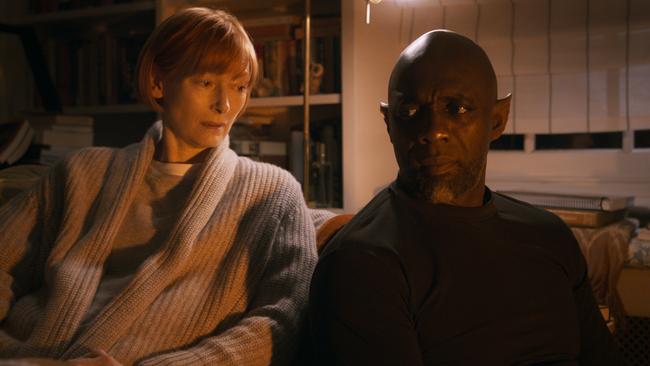
With roles in an array of Hollywood blockbusters under his belt – most prominently as Heimdall alongside Chris Hemsworth in the Thor films and as Bloodsport in The Suicide Squad – Idris Elba felt a pull to return to a purer form of storytelling.
To that end, he travelled to Sydney while the pandemic raged in the US to film Three Thousand Years of Longing, based on AS Byatt’s short story, The Djinn in the Nightingale’s Eye. It is directed and co-written by legendary Australian director George Miller (with daughter Augusta Gore) and co-stars Tilda Swinton. “It is an absolute postcard to the art of storytelling,” Elba tells The Australian. “It’s an unconventional film but has a very honest focus, (that) stories are really important to humankind.”
Elba, the star and associate producer of long-running cult UK TV detective series Luther, knows a good story when he reads it. Miller’s film, which feels nothing like his Mad Max saga, follows a 3000-year-old Djinn (genie in Arabic culture) who meets up with Swinton’s scholar of mythology, Dr Alithea Binnie, in an Instanbul hotel room. After he offers her three wishes in exchange for his freedom their bond deepens and in flashbacks he recalls fantastical stories from his past.
Reviews speak to the film’s complexity, beauty, “delirium” and ambition.
Speaking the day after the film’s world premiere in Cannes, where it received a six-minute standing ovation, Elba says “making the film was a masterclass for me”.
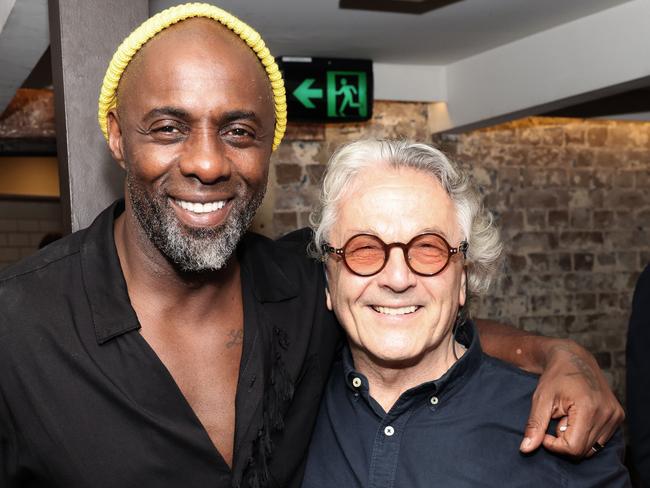
“George had some really beautiful images that he took from 3000 years of art and he put them in the script. Then he sat down and articulated every single layer, including the special effects and how the Djinn’s electromagnetic field will feel to the audience. George’s world is beautiful. He has a very vivid imagination. You have to have a lot of trust, just put your seatbelt on and let him drive.”
Rehearsals over Zoom during lockdown went virtually uninterrupted – and the long sessions of face time helped when it came to performance. “Tilda and I knew each other a little bit and during maybe three weeks of really intense rehearsals, pulling apart the script, talking and sharing stories, we got to know each other. So by the time we got to set, there was a chemistry that we could rely on to bring the drama between the two characters alive.”
He sports pointy ears, but Elba wanted the pastiche to end there. “I didn’t want the hooked nose, the funny eyebrows. He’s a Djinn that really wants to be human. There was a version where George wanted him to be really muscley and I said, ‘No, honestly’. We wanted him to be quite real.”
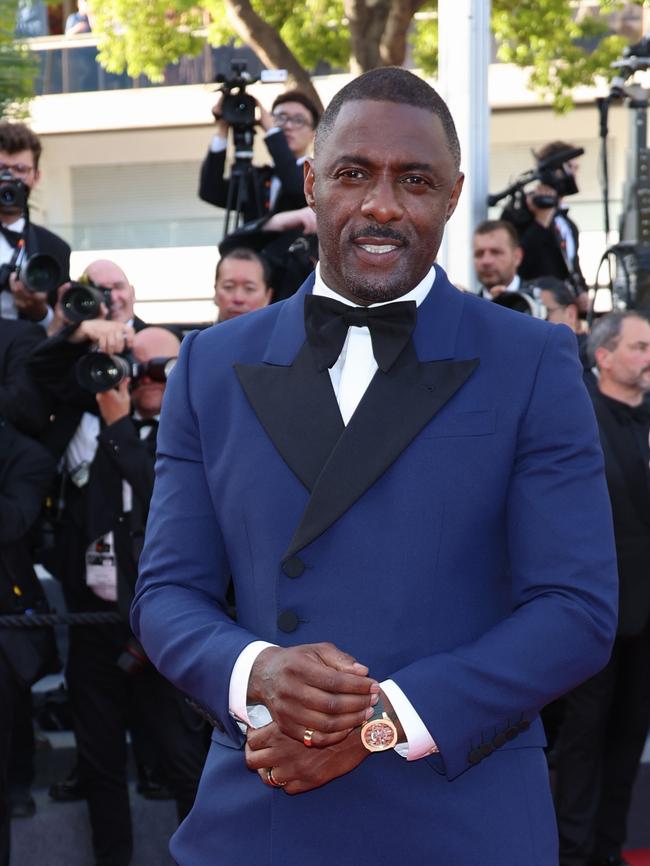
Still, Elba is a big guy and appears even bigger on screen in the film. “Yeah, it was grown,” he admits. The character was derived from “a mishmash of mythology”. There’s even a bit of merman going on.
How did he pack – well, everything – into that tight outfit? “It was a struggle,” he deadpans, and then goes into a bit of movie magic. “I had padding in the legs to make them look a bit bigger and the calves were emphasised. They laid scales on top of that and then layered in special effects.”
His deep, booming voice is a powerful tool for him as an actor. “Yeah, I didn’t go to drama school, so I didn’t learn all that technical stuff,” he says, “so I’m always learning about that. Here I got to create an accent that I think didn’t exist before the film and that was exciting.”
I’d first met Elba at the Toronto Film Festival in 2013 when he was promoting his landmark leading role in Mandela. He seemed a little nervous and was speedily relaying the background and plot points that he had clearly rehearsed.
I told him he was being boring and he stopped, glaring at me, then relaxed and became the lovable actor we all know. Two years later in Toronto he was talking up Beasts of No Nation and midway through a sentence he again glared at me and said with a grin, “I’d hate to be boring”. He had remembered.
Beasts of No Nation’s story of child soldiers in Africa was highly personal to Elba as it drew on his heritage, while his 2018 directing debut, Yardie, although based on the book by Jamaican-born writer Victor Headley, was inspired by Elba’s working-class upbringing.
Idrissa Akuna Elba was born and raised in the multicultural London boroughs of Hackney and East Ham. His Sierra Leonian father worked in the Ford Dagenham plant, while his Ghanaian mother, who had moved to Sierra Leone to marry his father before moving to London, worked in clerical jobs.
“I was a very good boy, I was a student and I wanted to be an actor,” Elba recalls. “But the environment where I grew up in Hackney, alongside good boys like me, there were gangs and there were drug dealers, what you typically find in urban areas of any city in the world where there’s poverty.
“There were very tiny run-ins with the law, but nothing in a major way. When you’re an immigrant in a city like London in the ’80s there are temptations left and right, just so you can get ahead.
“Not everybody can get a job and go off and make money. I grew up as an only child and my parents were very strict and wanted me to be career-driven. But my friends and I, we had other ideas.
“I wanted to be a DJ, another one wanted to be a drug dealer, another one wanted to be a footballer. England was an explosion of culture … and that fusion with African and West Indian culture became so rich.”
In his teens, after helping his uncle in the wedding DJ business, he started his own DJ company with his friends. He began acting on television in his early 20s and in 1995 was cast as a gigolo in the Sex episode of Absolutely Fabulous.
He moved to New York and worked on stage and in television productions, and his big international break came playing the charismatic Stringer Bell in the now-classic HBO series The Wire, created by David Simon. His bad guy drug dealer became a fan favourite.
“If there is any complexity to be found in that character it’s a combination of the writers and myself saying, ‘Let’s dig a little deeper, let’s dig beneath the surface a little’,” he says.
It’s a mantra the actor has adhered to throughout his career, even when he worked in fantasy blockbusters.
Elba has married three times and has two children, a daughter with Hanne Norgaard, his wife from 1999 to 2003, and a son with former girlfriend Naiyana Garth. In 2019 he married Somali-Canadian model Sabrina Dhowre in Marrakech.
I ask how he enjoyed filming Three Thousand Years of Longing in Australia, where he spent six months with his wife. “We loved it. It was Covid-free. So that was bonkers, you know, walking around and about and going to the beach. It was like, what! But it was beautiful.”
In 2016 Elba received an OBE from the Queen for his services to British drama. Despite seemingly endless speculation he will play the next James Bond he has long dismissed the idea, admitting he hasn’t been offered the role and probably too much time has passed. After all, he is about to turn 50 in September, even if he looks younger.
Will there be a big birthday celebration? “I don’t have any plans,” he said in Cannes, though he recently told one interviewer at Extra: “I’ve done parties. My wife threw a massive surprise birthday party for me, so this year I feel like I might just relax, have some friends and family, my kids, just chill.”
His focus is also shifting in mid-life. “I’ve wanted to really treat my body very well and this year on my 50th birthday, I’d like to just be really in good shape and happy and healthy. And then, you know, moving into the second part of my 100 years, if that’s what we get, I plan to diversify my life.”
What does that mean exactly? ”I’ve been in entertainment for a long time and I feel like I can contribute in business and innovation a little bit more. I’m really keen on the development of Africa, where my parents come from and, more than anywhere in the world, I feel like that continent deserves some real tender care and love and some thought. As a proud son of it, I feel like I can bring conversations around innovation, conversations around sustainability and conversations around growth.
“Young Africans view me as like a leader or a beacon, and I feel I could bring what I’ve learned in the media and amplify it in Africa. I really believe that if they see stories and understand stories that see themselves in a better light, see themselves in a progressive form, then they will emulate that. In Western culture we use film to show how great we are and I feel like I could do that in Africa.”
In terms of filmmaking, he says he’s a fan of the Nigerian and South African industries, and notes how Ghana has a very small industry. “I’m also a fan of the content creators in Africa, especially West Africa, these kids who have smartphones or smart cameras are making incredible content. I feel like it’s overlooked. So I’m really a fan of trying to harness that and help that grow.”
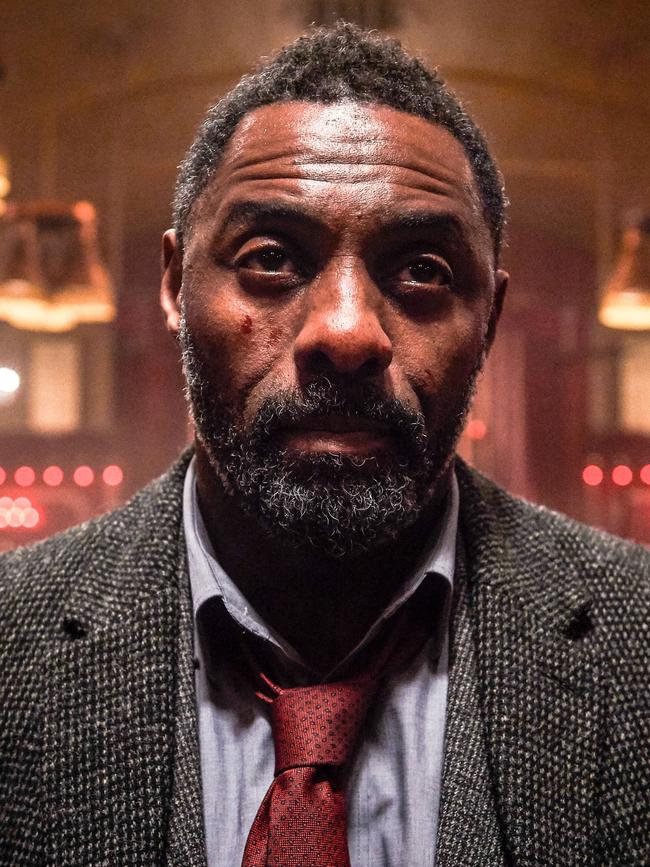
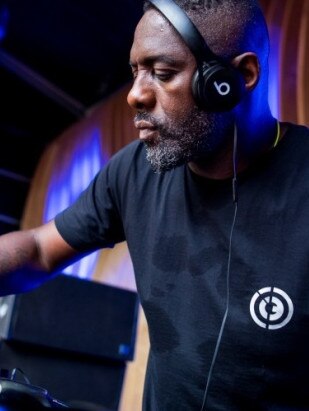
While he does not label himself a black actor – “actors are actors” – he recognises that his generation has paved the way for young “African descendant actors”, including Daniel Kaluya, who considers Elba an inspiration and one of his heroes.
“Before me, it was Denzel and Sidney and Wesley, all these great actors. And that’s a natural progression of change, I think. I feel very honoured that Daniel considers me in that way, but I also know that Robert Pattinson considers me an actor that he feels he modelled his career on. Don’t quote me, but I think I heard him say that,” he chuckles.
Elba is currently on screens in Beast, a high-octane, family-friendly mainstream movie shot in South Africa, where a father is vacationing with his two daughters and comes face to face with a (CGI) lion that goes on a rampage in a game reserve.
He has also finally returned for a long-gestating film version of Luther where he reprises his role as DCI John Luther.
“It really felt monumental to go back and to take it to a bigger scale as a film. I’m really hoping that it does two things: satisfy the audience that’s loved Luther for 10 years and also brings in a new audience.”
Music and DJing also continue to be a huge part of Elba’s life – he explored that passion when he co-created and starred in 2019 TV comedy series Turn Up Charlie, which had a mixed reception from critics and was not given a second season by Netflix.
“I have a song that came out on Friday, Walk of Shame, and it’s a very specific genre, it’s house tech. And I’m going to DJ in Ibiza; it’s as pure as it can be. People says I’m a renaissance man or I’m doing too much, but, you know, it’s creativity.”
He equates working as a DJ to theatre. “It’s this live interaction between you and the audience in an instant,” he says, clicking his fingers. “I’ve been DJing longer than I’ve been acting, so I’m sort of addicted to that feeling. And I really enjoy it. Ibiza though is very special, and if you know that part of the world, the energy is really designed for everyone to relax and have fun.
What does music mean to him? “Music is therapy for me. It’s nourishing. You know, I can close my eyes and find myself somewhere else when I listen to music.”
So what is on his playlist right now? “I’m listening to Kendrick Lamar’s new album, just because I love him as an artist. And I’m listening to Mayra Andrade who’s from Cape Verde. She sings in Portuguese and it’s beautiful.”
Would he collaborate with them? “Yes”.
While on the film front he says he’d like to work with Kaluya and Leonardo DiCaprio, when he was asked in Cannes regarding his three wishes in the context of Miller’s film he had a fun response.
“The first wish would be to wish I had a better answer. The second wish would be that the audience take away from this film the importance and the understanding that we learn from stories, and that this film is quite an unconventional telling of a story and that they watch it twice, three times to make it their own story. And the third wish would be for an electric Ferrari.”
Well now that sounds a bit like Mad Max or James Bond to me.
Three Thousand Years of Longing releases in cinemas on September 1

To join the conversation, please log in. Don't have an account? Register
Join the conversation, you are commenting as Logout